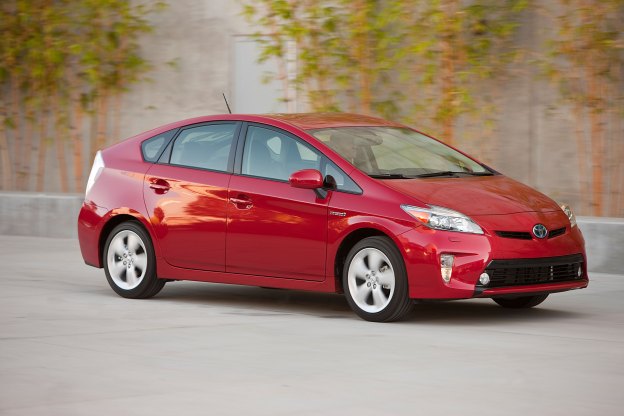 If you’ve spent any time in California recently the fact that the Toyota Prius was the state’s most popular car in 2012 when it comes to sales probably come as no surprise.
If you’ve spent any time in California recently the fact that the Toyota Prius was the state’s most popular car in 2012 when it comes to sales probably come as no surprise.
It’s hard to drive anywhere in the state and not see a few Prius models within a mile stretch – a trend that’s dated back some years.
Still, the number of Prius sold in California is pretty mind blowing. According to the research firm Polk, the Prius family (Prius v, Prius Plug-in, and Prius c) accounted for 65,490 vehicles registered in the state last year including retail and fleet sales, making Prius the No. 1 vehicle badge sold in the state.
The Honda Civic was second in number of vehicles registered in California with 60,100 and the Toyota Camry was third with 58,401vehichels registered in the state.

Editors of Cleanmpg.com recently tested the Prius v on a 365-mile-highway route at a steady cruise-control moderated speed. In the evaluation, the Prius v averaged 40.8 mpg and actually beat its own EPA highway rating by 1.9 percent.
So when you consider that California fuel prices consistently rank as some of the highest in the nation, the popularity of the Prius has made sense over the years. But with so many other carmakers now offering comparable fuel efficient vehicles (some more stylish than the Toyota), it makes you wonder if any other carmaker will ever be able to measure up.


